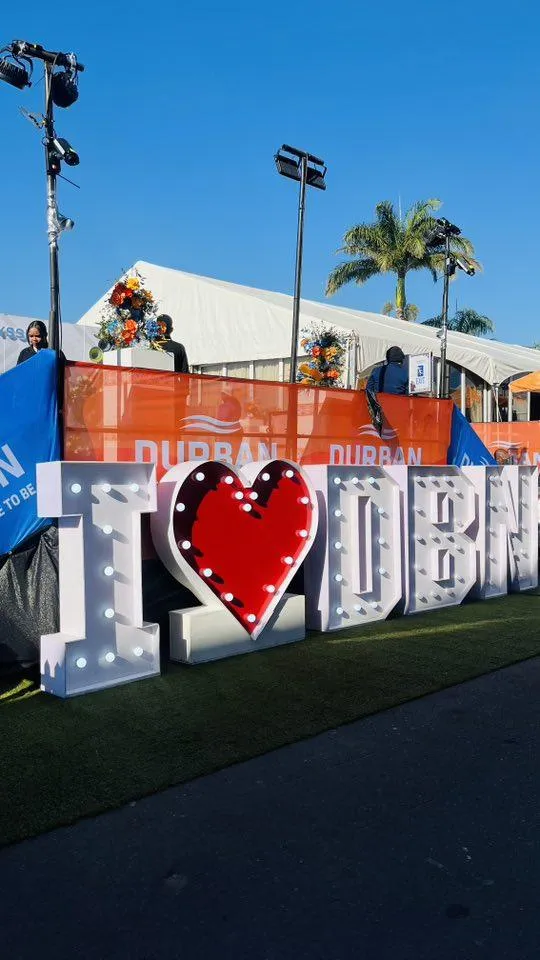
EThekwini Municipality is thrilled to announce a powerful resurgence in tourism, with both international and domestic visitor numbers showing exceptional growth and economic impact from January to May 2025.
Image: Durban Tourism/Facebook
The EThekwini Municipality is celebrating an impressive revival in the tourism sector, revealing significant growth in both international and domestic visitor numbers from January to May 2025.
During a two-day Strategic Planning Workshop hosted by the eThekwini Presidential Working Group at the Southern Sun Elangeni Hotel, the Research and Data Unit of South African Tourism presented enlightening data that illustrates the strong recovery trajectory for the region.
The workshop serves as a platform for strategising enhanced approaches to further bolster this vital sector.
According to the latest figures, international tourism to Durban has surged dramatically, with over 186,000 additional arrivals compared to the same period last year.
This influx has led to a combined local spend exceeding R750 million, propelled largely by strong card transactions and cash withdrawals in the region.
Notably, the Easter period in April made a significant contribution of R115.9 million, marking a remarkable 48% year-on-year increase.
Leading the charge in international arrivals are tourists from Mozambique, the United Kingdom, and the United States, all of whom are drawn to Durban’s stunning beaches and vibrant cultural scene.
On the domestic front, the statistics tell a compelling story as well, with Durban welcoming a staggering 2.8 million trips that translated into an impressive R4.8 billion in combined local expenditure.
The Easter holiday period notably saw a 52% increase in domestic spending as visitors flocked to enjoy the festivities, while May outstripped April with a spend of R844 million—a remarkable 50% growth from the previous month.
A noteworthy trend is the rise in visitors from South Africa's major metropolitan centres, particularly Cape Town, alongside Johannesburg and Tshwane.
As for spending trends, data indicates that retail and dining have emerged as the frontrunners in tourist expenditure, particularly fuelled by leisure travel.
Although traditional hotel accommodations remain a staple, many domestic travellers are increasingly opting for shared or self-catering options, reflecting a shift towards more personalised travel experiences.
City Manager Musa Mbhele emphasised the importance of continued investment in marketing and infrastructure to support this positive momentum.
“These results are not just encouraging, they are a clear signal that our strategic investments in tourism are paying off. Durban is not only bouncing back; we are setting the pace for tourism recovery in South Africa.
"We remain fully committed to enhancing visitor experiences, expanding our offerings, and ensuring that Durban continues to thrive as a world-class destination for both leisure and business travel," he said.
IOL